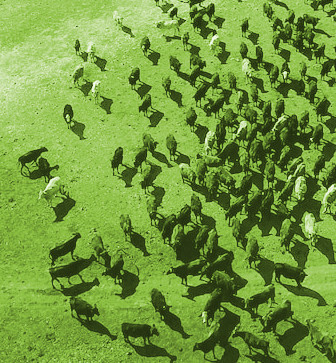Agricultural charities questioned
 An expert has proposed stripping charitable status from Australian agricultural associations that rake in millions.
An expert has proposed stripping charitable status from Australian agricultural associations that rake in millions.
Prof Ann O’Connell of Melbourne University law school says Co-operative Bulk Handling Ltd (CBH) and Queensland Sugar Ltd effectively receive a subsidy at taxpayer expense.
The companies are officially some of Australia’s largest charities, but they also operate a number of profitable subsidiaries, including some based overseas.
CBH distributes surpluses to its customers, who are mostly its member-owners.
Prof O’Connell says their status “stretches the notion of charity”.
One of the key requirements to be recognised as a charity in Australia is to operate for public benefit, with private benefits being “incidental”.
Both CBH and Queensland Sugar say they benefit the public by promoting Australian agricultural resources.
“Tax concessions amount to a government spending program,” Prof O’Connell has told reporters.
“Decision makers should think about whether these companies provide enough public benefit to justify their subsidies.
“They run businesses that are an end in themselves, and the size of the businesses is remarkable, putting them in the highest categories of charities by size.”
Prof O’Connell says the law should be changed to exclude large membership-based businesses from charitable status, or to require them to demonstrate an altruistic benefit.
The government does not appear to have much appetite for such reform. One of its only moves in the sector recently has been to strip animal rights lobby groups of their status if they encourage trespassing. The Federal Government has also taken aim at environmental groups, which it has warned may lose charitable status if they engage in political campaigns.
These efforts have been described as “a clear fetter on freedom of political communication” and “a massive overreach”.
In 2017, the Productivity Commission called for changes to the law to prevent agricultural associations from being charities.
The government body found that the tax concessions disadvantaged competitors and reduced financial transparency.
However, the government rejected that recommendation, saying promoting agriculture is a charitable purpose.
The government’s 2018 review of charity regulation did not consider agricultural associations.
Prof O’Connell said Queensland Sugar and CBH clearly carry on business “as an end in itself”
“There might be a public benefit, as there is to most Australian businesses that trade and export goods – but not all businesses are charities. In the case of QSL and CBH there is also a significant private benefit,” she said.
“These companies do not apply their revenues for charitable purposes. Labelling these significant business enterprises as charities blurs the line between the charitable and the for-profit sector. A supermarket in a country town might be for the public benefit, but it is not a charity.”








 Print
Print